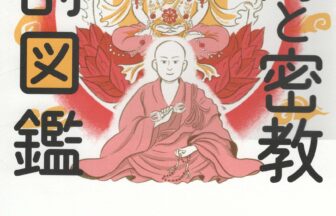【English】
The author is an expert of Linguistic Psychology. This is why the book is written by applying “The Law of Learning” that is well known in neuroscience to studying a foreign language. This approach can be thought of a reasonable way for doing it. The author added that she also described the reason why and how it works. So, this book is rather different from so many books available in bookstores for studying English.
One of the important concepts in the book is “SCHEMA” formation. Here, the meaning of this word seems to be very difficult to explain,… it can be said, a “system for knowledge” in a word. The author expresses that “SCHEMA” in language is a kind of very complex and abundant knowledge under the iceberg. It is like an ability that a baby can acquire a sense of discriminating countable and uncountable without any thinking. How to use an article is the same. (I have often been puzzled which article I have to use here, “a” or “the” or “no article” ????…) And this skill cannot be gained without his / her own effort, according to the book.
The author also puts an emphasis on the importance of abundance of vocabulary. Here, “Abundance of Vocabulary” has the following elements;
1) To know in what syntax the word is used
2) To know what co-occurring words with the word are
3) To know how frequent the word is used
4) To know in what context the word is used
5) To understand how far the word is spread, i.e., semantic polysemy
6) To understand essential meaning (or concept) of the word
In order to acquire such “SCHEMA”, the author introduces some useful On-line Tools as follows;
a) Cambridge English Dictionary
b) SkELL (Sketch English for Language Learning)
c) COCA (Corpus of Contemporary American English)
It seems to me that very steady effort is indispensable to become a natural and exact speaker, writer, listener and reader of English, I’m too inferior and quite impossible to attain the level.
PS
Being inspired by the book, I decided to keep self-studying again by “Pocket GOGAKU” (NHK Publishing Co. Ltd.;10,780 JPY for a year), which I did nothing last year. (^-^;
【In Japanese; 日本語】
タイトル:英語独習法
著者は「言語心理学」の専門家です。 したがって本書は、脳科学でよく知られている「学習の法則」を外国語学習へ応用して書かれています。 このアプローチは合理的な方法であると考えられます。 著者は、その理由と仕組みについても説明したと記しております。 そのように、この本は書店で販売されている英語学習用の多くの本とはかなり異ったものとなっております。
この本の重要な概念の 1 つは「スキーマ」を形成するということです。 ここで、この言葉の意味を説明するのはたいへん困難なように思います…あえて一言で言えば「知識の体系」ということでしょうか。 著者は、言語における「スキーマ」とは、氷山の下にあるひじょうに複雑で豊富な知識の一種であると表現しています。 それは、赤ちゃんが何も考えずに可算(数えることができる)名詞と不可算とを区別する感覚を獲得できている能力のようなものです。 冠詞の使い方も同様です。 (私は、この場合、「a」か「the」か「無冠詞」か一体どの冠詞を使用すればよいのかしばしば戸惑います???)そして、この「スキーマ」を獲得できるスキルは、この本によると、本人の努力なしには達成できないということです。
著者は語彙の豊富さの重要性も強調しています。 ここで、「語彙の豊富さ」には次のような要素があります。
1) その単語がどのような構文で使われているかを知ること
2) その単語と共起する単語が何かを知ること
3) その単語の使用頻度を知ること
4) その単語がどのような文脈で使われているかを知ること
5) その言葉がどこまで広まっているのか、つまり意味上の多義性を理解すること
6) 言葉の本質的な意味(概念)を理解すること
このような「SCHEMA」を習得するために、著者は次のようにいくつかの便利なオンラインツールを紹介しております。
a) ケンブリッジ英語辞典
b) SkELL (語学学習のためのスケッチ英語)
c) COCA (現代アメリカ英語コーパス)
自然で正確な英語の話し手、書き手、聞き手、そして読み手になるには、ひじょうに地道な努力が不可欠であるように思えますが、私はそのレベルに到達するにはあまりにも劣っていて、まったく不可能です。
追記:
この本に触発されて、昨年は何もしなかった『ポケットGOGAKU』(NHK出版、1年分10,780円)で再び独学を続けることにしました。 (^-^;

The Book’s Cover (本の表紙ページ)

About the Author (Mutsumi IMAI; 今井むつみ)

Conceptual Figure about “SCHEMA” (スキーマの概念図)

One of Recommendable On-line Tools by the Author: SkELL (著者が推薦するオンラインツール:SkELL)
(著者が勧めるオンラインの学習教材:SkELL)

One of English Materials that I Decided to Keep Studying (1 of 2): 6 Minute English from BBC (私が今年度継続することを決めた教材[その1] : 6 Minute English ; 無料)

















No comments yet.